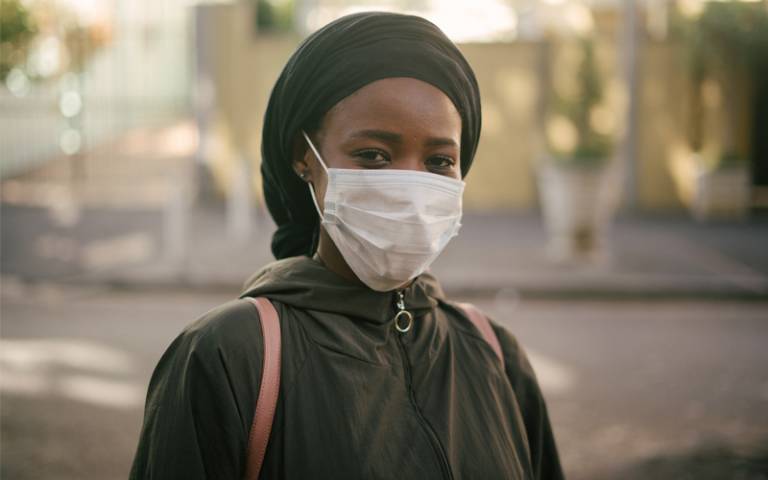Government’s Covid-19 response discriminates against BAME and migrants groups
11 June 2020
The UK Government’s ‘hostile environment’ policy response to COVID-19 is harming Black, Asian and minority ethnic and migrant groups, according to global health experts led by UCL and Newcastle University.

In a paper entitled, ‘COVID-19: the great unequaliser’, published in the Journal of the Royal Society of Medicine, the authors discuss how the risk of contracting COVID-19, the severity of the illness and the risk of poor health, are all increased in BAME groups due to existing health and welfare policies and the actions implemented in response to the pandemic.
Lead author Dr Delan Devakumar (UCL Institute for Global Health) said: “Black, Asian and minority ethnic and migrant groups have a greater risk of contracting COVID-19 infection, as they are more likely to live in poor and overcrowded accommodation and do precarious forms of work or work in the gig economy. They are also more likely to get a severe form of the infection.”
At the outset of the pandemic many migrant groups, especially those without documents, have been less likely to seek help, or may have sought help later, but only after suffering from more advanced stages of the disease, according to the authors.
They argue, the UK Government’s ‘hostile environment’ policy, includes barriers to accessing the health service, such as upfront charging and the sharing of data with the Home Office, has led to migrants avoiding healthcare.
With the UK and the world expected to enter one of the deepest recessions in a lifetime, the authors say that the poorest members of the population, who face insecure employment prospects and who are most vulnerable in terms of health, are at risk of other stress-related health problems, especially mental health issues, which increase in times of recession.
“Economic hardship is a fertile ground for populist movements to thrive and sadly, many world leaders have used the COVID-19 outbreak, mixing public health actions with divisive policies to further their own agendas,” said Dr Devakumar, adding that minority and marginalised groups will bear the brunt of these actions.
The authors conclude: “To successfully combat a pandemic, health protection measures rely on well-prepared and well-functioning health services that treat and support everyone, ensuring those most at risk are protected. Public health principles based around equity should be firmly at the core of the world’s response.”
The statement, led by Dr Delan Devakumar, was in collaboration with Dr Geordan Shannon (UCL Institute of Global Health) and Dr Sunil Bhopal from the Population Health Sciences Institute at Newcastle University and Northumbria Healthcare NHS Foundation Trust.
Links
- Research paper in Journal of the Royal Society of Medicine
- Dr Delan Devakumar’s academic profile
- Dr Geordan Shannon’s academic profile
- UCL Institute for Global Health
- UCL Population Health Sciences
- Newcastle University
- Northumbria Healthcare NHS Foundation Trust
Image
‘African-American woman in facemask on city street’ Credit: Retha Ferguson on Pexels CC BY 2.0
Media contact
Erin Johnson
T: +44 (0) 750 648 5823
 Close
Close

